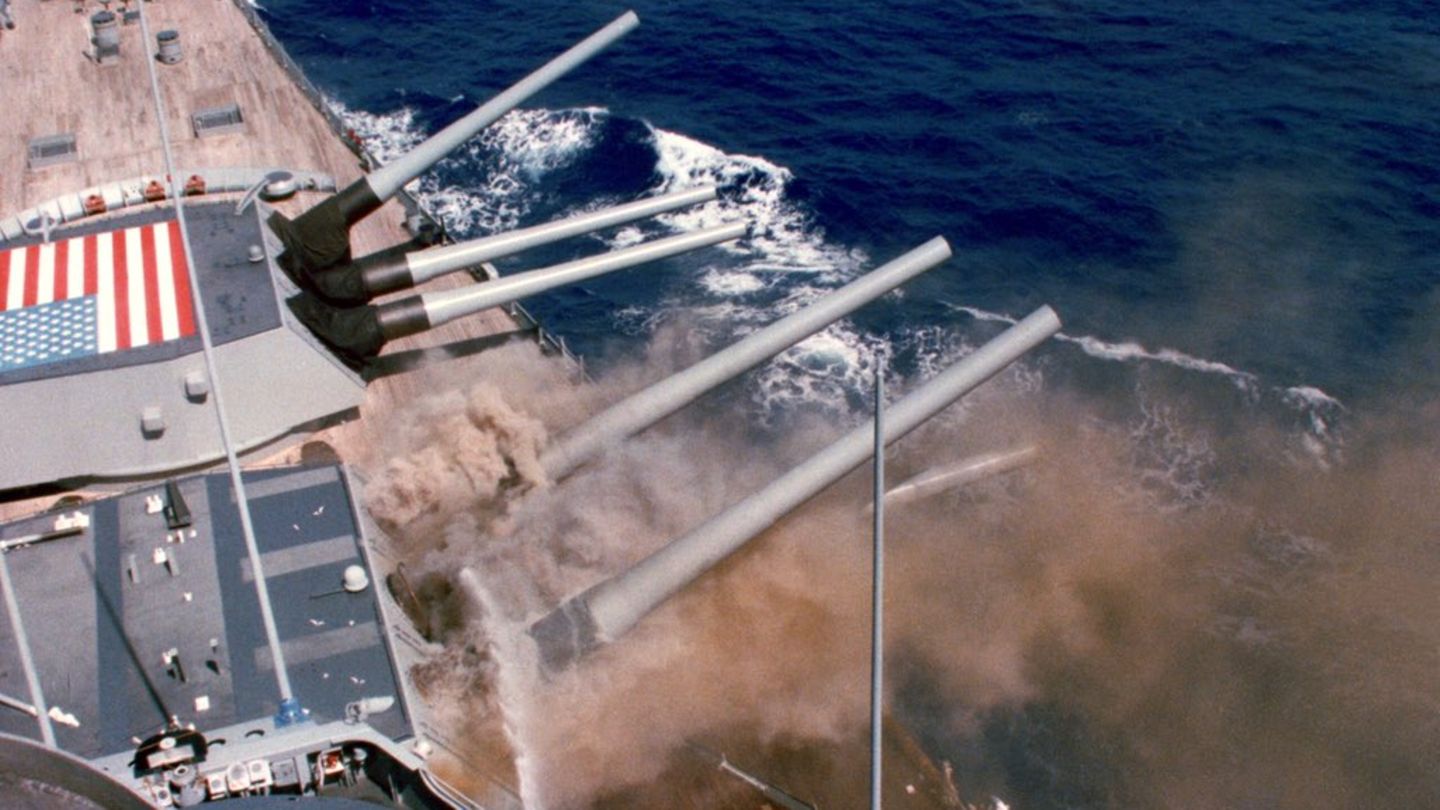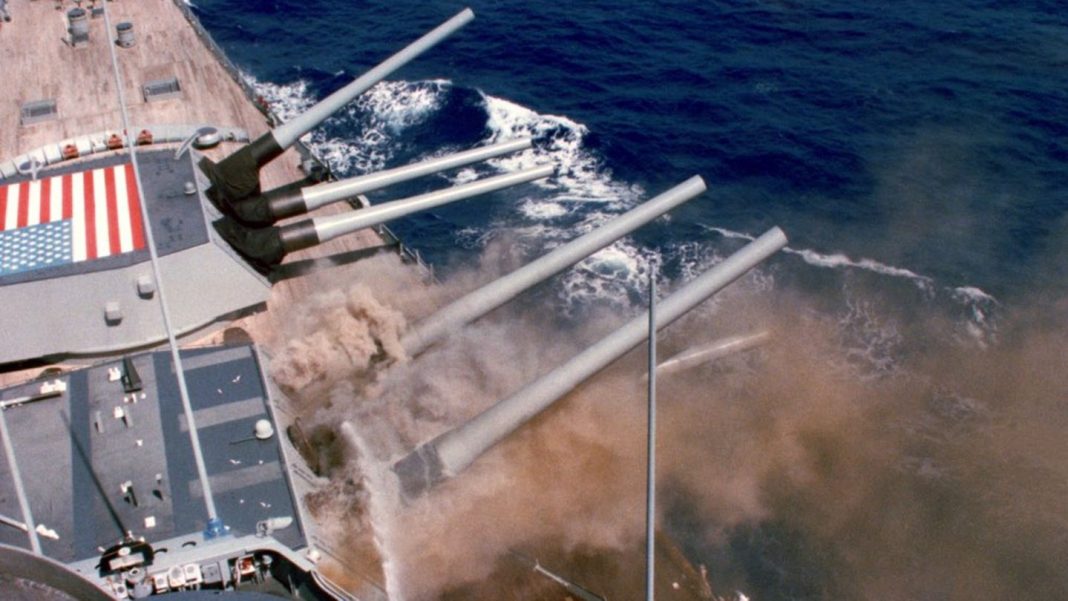Explosion on the USS Iowa
Did a jealous sailor explode the largest battleship in the United States?

The explosion: Thick smoke penetrates from the second main tower.
© Wiki Common / Manufacturer
In the spring of 1989, an explosion rocked the USS Iowa. 47 Sailors died. The Navy is quick to claim that a gay romance drama is behind the disaster. But probably only one sailor was made a scapegoat.
In the midst of peace, a gigantic explosion rocked the USS Iowa on April 19, 1989. The huge battleship was built during World War II and reactivated by US President Ronald Reagan. Now it is rising. The second main tower with its 40.6-centimeter guns had exploded. 47 Sailors died, eleven crew members serving on the lower floors of the huge tower survived the explosion. The ship was able to call at her home port under her own power, but the damage was never repaired. The USS Iowa was retired from service.
Suicide and attack
How could the disaster occur? The Navy leadership quickly had a theory at hand: it was not a misfortune, but an attack.
The officer Clayton Hartwig was gay and irretrievably in love with his comrade Kendall Truitt. Hartwig was responsible for the middle pipe of the triple tower. The explosion occurred during a practice shooting off the coast of Puerto Rico. The projectile in the barrel was a practice grenade without explosives. It was to be fired with a propellant charge consisting of six bags weighing about 50 kilograms. In guns of the caliber, the propellant charge and projectile are separated, and not connected to each other in a sleeve, as in rifle ammunition.
The great” billet ” of the USA – the battleships of the Iowa class
7
Display images
Suspicious Life Insurance
Because of his unhappy love for the younger Kendall Truitt, Officer Hartwig is said to have placed a detonator between the bags. The only reason the ship did not sink was because it managed to flood the magazine of the tower, so that the ammunition supplies there did not catch fire. Among the dead was Clayton Hartwig. His crush Kendall Truitt was not in the tower and was certainly not to be injured by the explosion. Hartwig had used him as a beneficiary for his life insurance.
Campaign of an energetic woman
The taciturn and introverted Truitt was horrified and disturbed by the attack and the lurid coverage of the “gay drama”. His energetic wife at that time made him correct the accusations in public. Truitt vigorously denied that there had been a sexual relationship with Hartwig. They were simply different from their predatory comrades. “When we arrived at a port, say in France, we did a sightseeing tour for two,” Truitt said in a TV interview. “The others just went drinking. Behind our backs, they said we had to be gay. It’s clear you’re gay if you go to a museum rather than a bar.”
His marriage would have disturbed his friend Hartwig, whether out of jealousy, or because he wanted to spare Truitt a disappointment. After that, the relationship between the men went downhill. “It wasn’t the same between us anymore,” Truitt said. “He realized that love for my fiancée was more important to me than he was.”
Truitt never believed in an attack
Truitt considered it impossible that Hartwig, who was not skilled in craftsmanship, could have built a kind of detonator on board. Truitt also denied that he could have smuggled the detonator into the barrel. In the tower, the men of the loading crew would be so close together that a crew member who did not belong to them would never have come to the bags. In the TV interview, he considered a malfunction of the hydraulic loading crane possible, which would have pushed the bags into the chamber at too high a speed. Something like this could have caused an explosion.
No apology from the Navy
The public relations work of the Truitts and Hartwig’s parents led to an independent investigation. She revealed that the bags could also have ignited themselves. The explosion was never really clarified. The Navy later expressed regret to Hartwig’s relatives, but avoided a formal apology.
Truitt himself was among the first to enter the flooded tower. He said that they had waded through a soup of fire water and body parts to recover the injured. At Iowa, he never wanted to serve again. “This ship is a place where he lost 47 crew members,” his wife Carole said in the interview. “He doesn’t talk to me about that. I’m not gonna let him go back. I’m tired of watching my husband cry himself to sleep over the ship every night.”
Read also:
The first tank attack was a huge success-in propaganda
Three sunken wrecks from the Second World War disappeared without a trace
German frigate “Sachsen” torched by own missile



